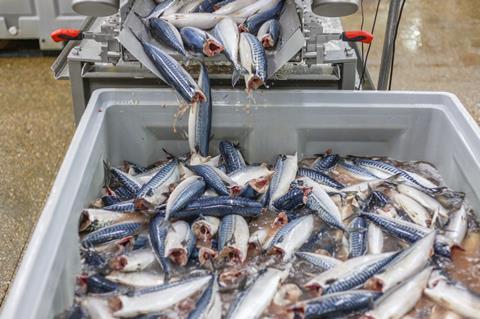
The Northeast Atlantic mackerel population is so depleted that there needs to be a 77% reduction in catches in 2026, the International Council for the Exploration of the Sea has said.
The independent body, which advises governments on managing fish stocks, has said that catches should be limited to 174.357 tonnes in 2026.
Mackerel populations have now reached the lowest level in over 20 years, with quotas on average having exceeded the scientific advice by 39% since 2010.
The North Atlantic Pelagic Advocacy Group has expressed “deep concern” over this result and has said the stock will “struggle to recover” from this level.
“The latest update on the state of the mackerel stock is shocking – but not surprising,” said Aoife Martin, NAPA independent chair. “As the voice of the marketplace, NAPA has been calling for action to address this issue for five years.
“In that time, excess catches have totalled over one million tonnes above scientific advice. It has proven inevitable that there would be stark consequences not only for the species, but for all who depend on it for their livelihoods.”
NAPA is leading a Fishery Improvement Project that aims to dive political action towards a comprehensive sharing arrangement, keeping total catches within scientific limits.
The group has also identified interim steps that all coastal states can take to reduce fishing pressure. These include limiting high seas catches to 10% of total catches, focusing on human consumption for the use of whole mackerel and limiting banking and borrowing – in which countries bring forward or push back certain amounts of quota between years – to 10% of the annual total.
“The severity of the state of the stock should serve as a jolt to get the next round of negotiations on track towards a meaningful compromise, and an agreed position for sustainable fishing,” said Martin.
Changing species
In response to the dwindling stock of Northeast Atlantic mackerel, Princes has changed all of its branded mackerel products to Chilean mackerel or jack mackerel, as it is commonly known.
This species meets the Marine Stewardship Council’s sustainability standards, which considers fish stock health, ecosystem impact, and the effectiveness of fishery management.
“Along with other brands and retailers, we have long called on coastal states to agree quotas in line with scientific advice and implement a long-term science-based management plan,” said David McDiarmid, corporate relations director at Princes. “To date there has been insufficient tangible progress, and we now have NGOs warning of stock collapse. Princes warned that a lack of progress meant we would actively consider alternative supply sources and this is proof of action.”
As part of the internal process to transition mackerel supply, Princes undertook a comprehensive product review and consumer panelling which fully endorsed the move to jack mackerel.
“With Northeast Atlantic mackerel yet to regain its MSC certification, this shift represents a clear market signal of the need to provide certified sustainable choices for UK shoppers,” said George Clark, programme director UK and Ireland at MSC. “It is critical that we see real progress for Atlantic mackerel soon, and our hope is that there will to be even more choice for those consumers looking to ‘buy blue’ when they’re out shopping for their seafood as a result.”



















No comments yet